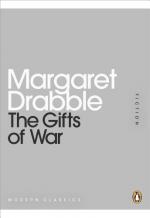|
This section contains 378 words (approx. 2 pages at 300 words per page) |

|
History as well as temperament apparently summoned Miss Drabble to the role of a contemporary George Eliot: to write about work, society, morality in the widest sense; to indulge an "unfeminine" intelligence in a world where women were at last allowed to be as critical as men. Instead, she hugged the domestic shore with a graduate's outboard motor, and wrote about the "new woman's" uneasy inheritance of traditional charts. She spoke for those who secretly feared they had the worst of both worlds: education without a career, inferiority without love. Duty loomed large, to fill large gaps.
[Jane, the heroine of The Waterfall,] takes a new step—though whether forward or backward is hard to say. She is the first of Miss Drabble's characters to live mainly, if briefly, in and for love. And it is love of a very old-fashioned romantic kind: an infatuation, a madness, a...
|
This section contains 378 words (approx. 2 pages at 300 words per page) |

|


